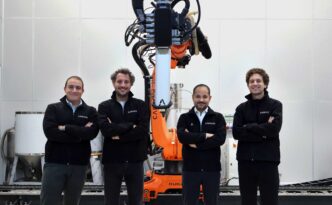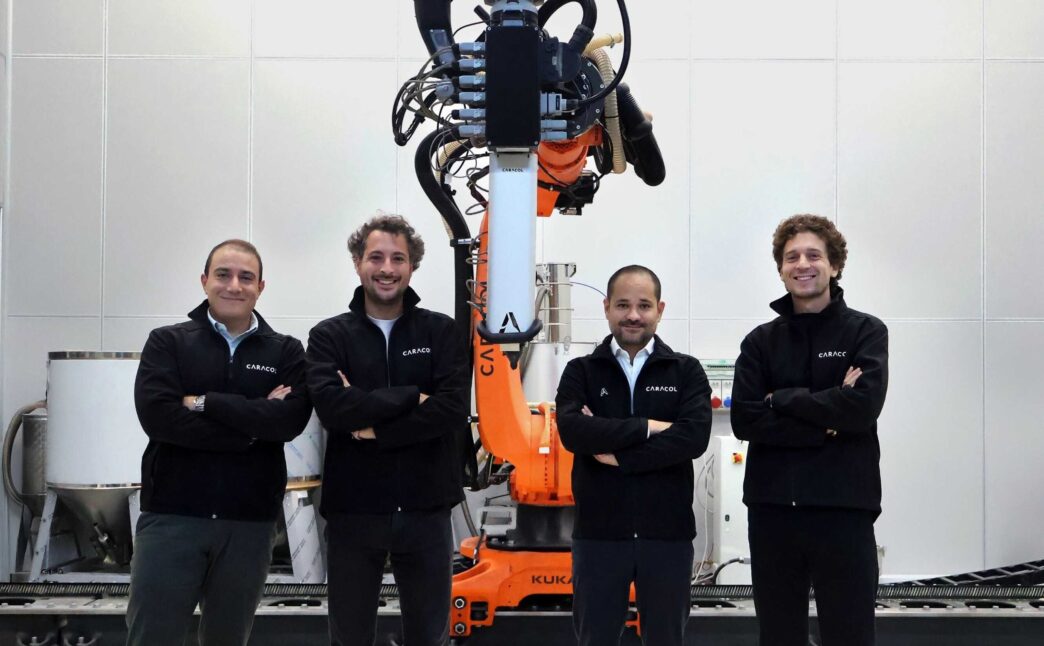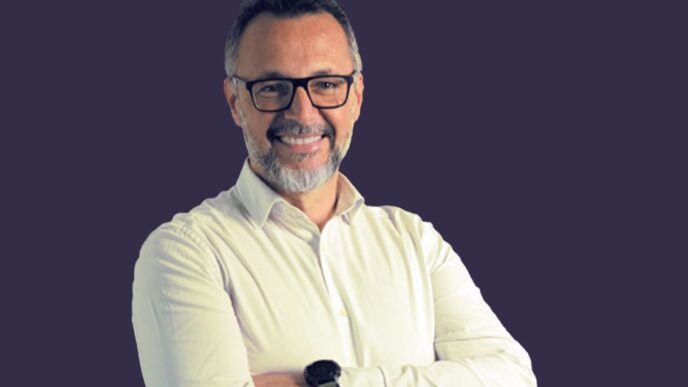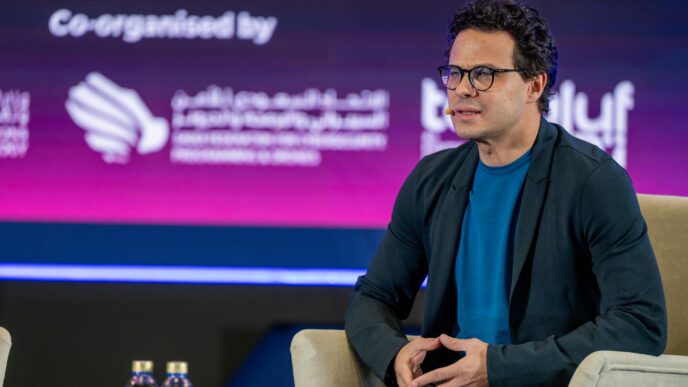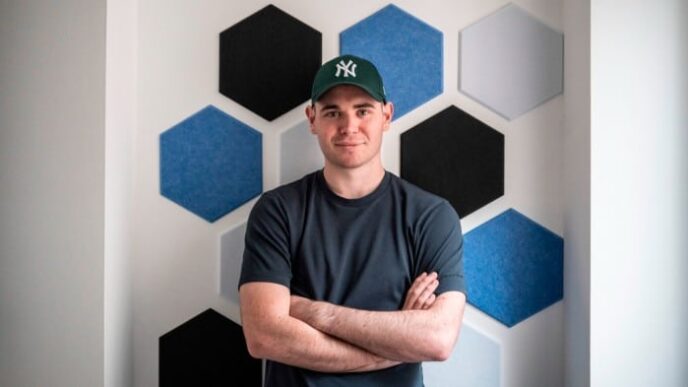Caracol, an Italy-based industrial tech startup, has secured $40 million in an oversubscribed Series B funding round to accelerate the global adoption of its large-format robotic 3D printing technology. The investment, co-led by Omnes Capital and Move Capital, with participation from Italy’s CDP Venture Capital and other institutional investors, marks a pivotal step in scaling Caracol’s operations worldwide. The strong investor demand for this round even allowed some early backers to exit with impressive returns, a sign of growing confidence in the company’s technology and market position.
Founded with a vision to revolutionize how large and complex components are manufactured, Caracol has developed a proprietary additive manufacturing system that combines advanced robotics, software, and materials science. Its platform replaces traditional molds and tooling with robotic arms capable of printing massive, geometrically intricate parts directly from digital models. By using multi-axis robotic arms and a range of composite and metal materials, Caracol’s system enables manufacturers to produce lightweight, high-performance components with minimal waste and faster turnaround times.
This breakthrough approach has made Caracol a sought-after partner for industries such as aerospace, automotive, marine, energy, and construction. In sectors where custom components and precision engineering are critical, the ability to print large-scale structures on demand has the potential to dramatically cut costs and lead times. From lightweight aircraft parts to ship hull components and industrial molds, Caracol’s technology offers a flexible, sustainable alternative to traditional manufacturing methods.
The company’s growth trajectory underscores the market’s appetite for such innovation. Caracol has installed over 100 of its large-format robotic additive manufacturing platforms across more than 50 countries. Each system combines proprietary software for design and process management with real-time quality monitoring to ensure consistency across complex builds. The company’s clients—ranging from major aerospace suppliers to automotive manufacturers—are using the technology not just for prototyping but for end-use production, a significant milestone for the additive manufacturing industry.
Caracol’s expansion has been equally impressive. Over the past few years, the company has more than doubled its revenue annually, driven by international demand for large-scale, high-precision additive manufacturing solutions. To better serve North American clients, Caracol recently opened its U.S. headquarters in Texas, positioning itself near the aerospace and defense manufacturing hubs that rely on advanced production capabilities. With the new $40 million injection, the startup plans to cement its presence in key global markets, including Europe, North America, the Middle East, and the Asia-Pacific region.
Beyond geographic expansion, Caracol is channeling its funding into further technological development. A major focus will be on strengthening its proprietary software platform, which orchestrates every stage of the 3D printing process—from toolpath generation to material flow optimization and automated defect detection. The company plans to integrate more AI-driven automation and machine learning models into this system, allowing it to predict and correct quality issues during printing. These enhancements will improve efficiency, reduce waste, and increase reliability for high-value applications like aerospace and defense manufacturing.
Another strategic area of investment is the advancement of Caracol’s metal additive manufacturing capabilities. The company is scaling its use of metals and metal composites to meet rising demand from aerospace and defense clients seeking high-strength, lightweight parts with complex geometries. By combining robotic precision with advanced metallurgy, Caracol is positioning itself as a key supplier to industries where performance, reliability, and sustainability must coexist.
Hiring and talent expansion are also at the heart of Caracol’s next phase. As the company grows globally, it plans to build specialized teams across engineering, materials science, software, and operations. This will not only support the company’s scaling goals but also strengthen its position as a global innovation leader in robotic additive manufacturing. By continuing to blend automation, robotics, and advanced materials, Caracol aims to set new standards for what industrial 3D printing can achieve at scale.
The significance of Caracol’s Series B round extends beyond its balance sheet. It reflects a broader shift in the manufacturing industry—one where digital fabrication, AI, and robotics converge to make production more adaptive and sustainable. As supply chains face continued pressure from global disruptions, technologies that allow manufacturers to produce locally and on demand are becoming vital. Caracol’s model of distributed, automated production offers an alternative to centralized, resource-intensive manufacturing systems, aligning with global sustainability and efficiency goals.
With over $50 million in total funding raised to date, Caracol now stands among Europe’s leading industrial 3D printing innovators. The combination of strategic investors, consistent revenue growth, and a proven global footprint suggests that the company’s next chapter will focus on deepening its technological moat while scaling operations for high-value markets.
As large-format 3D printing moves from niche experimentation to mainstream adoption, Caracol is uniquely positioned to lead that transformation, bringing together robotics, software, and materials into one cohesive manufacturing ecosystem capable of building the future, one layer at a time.
